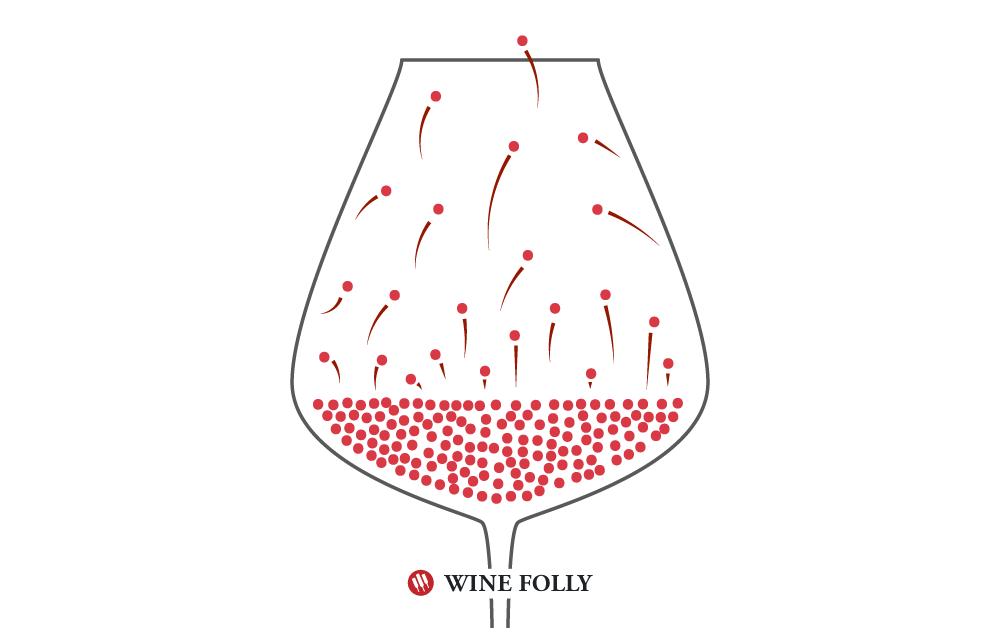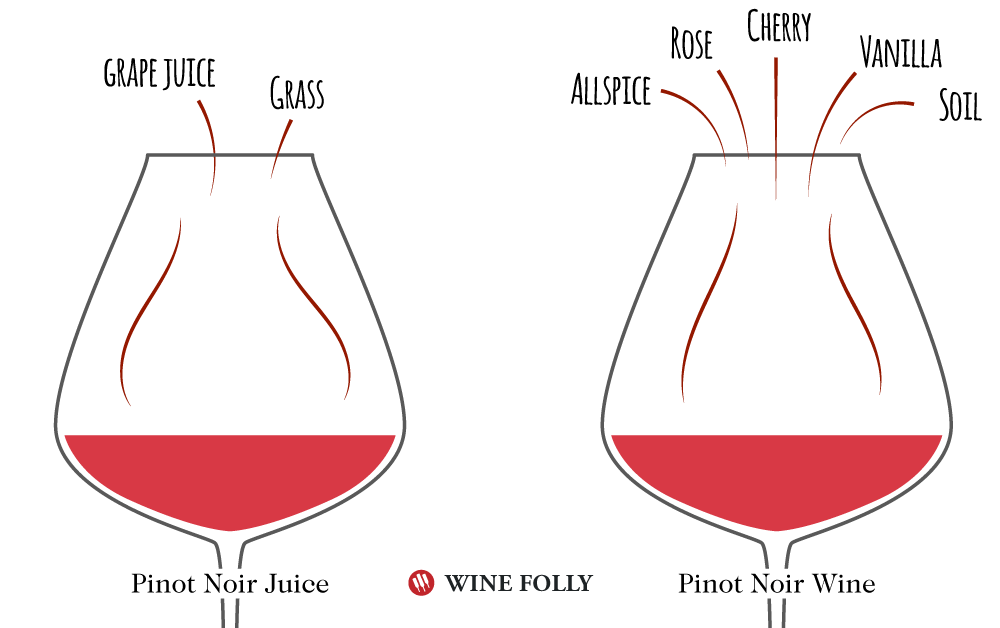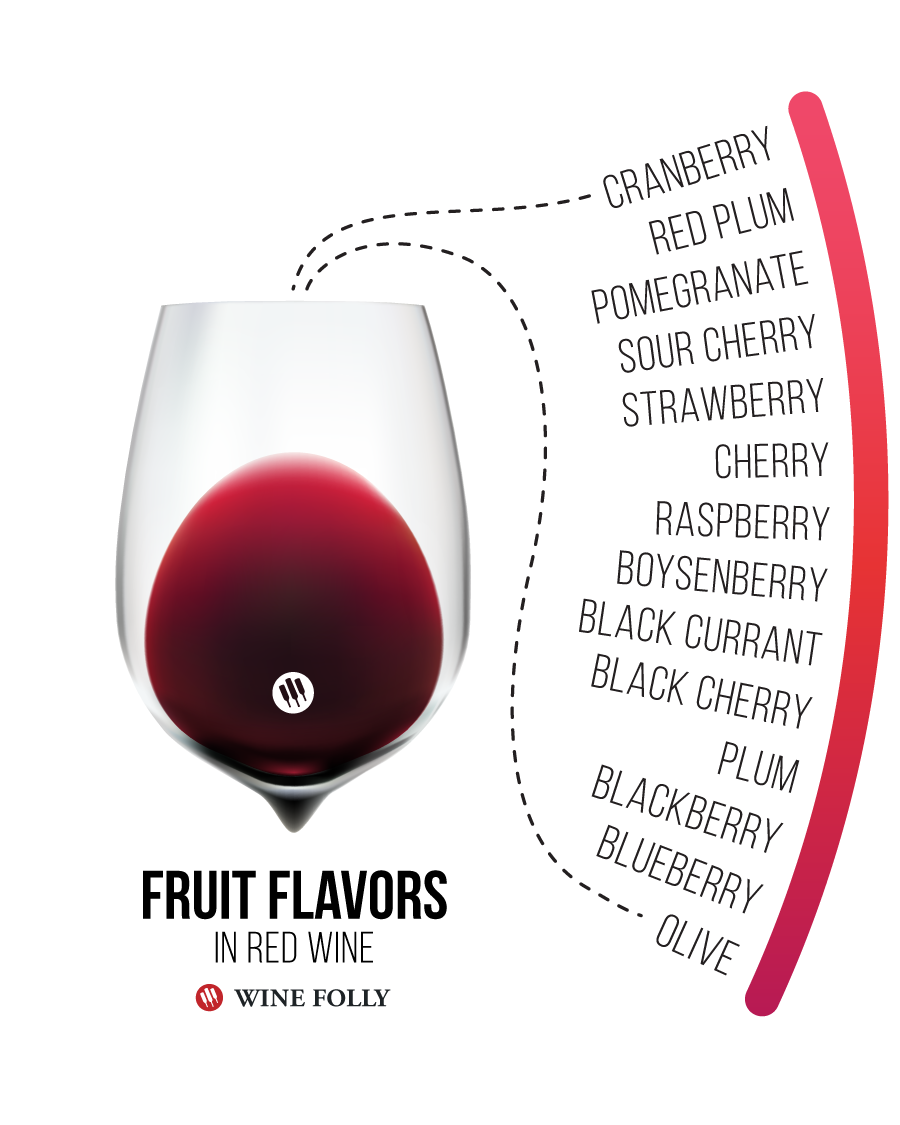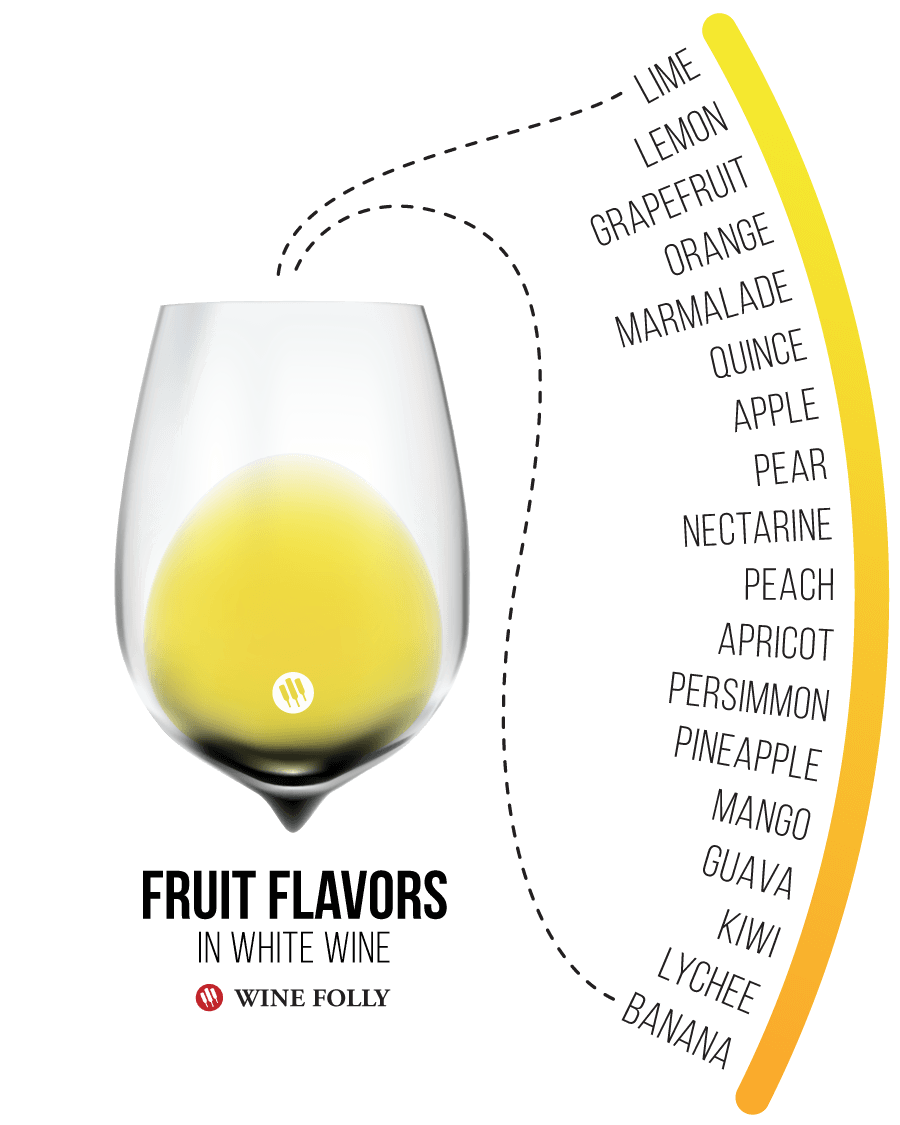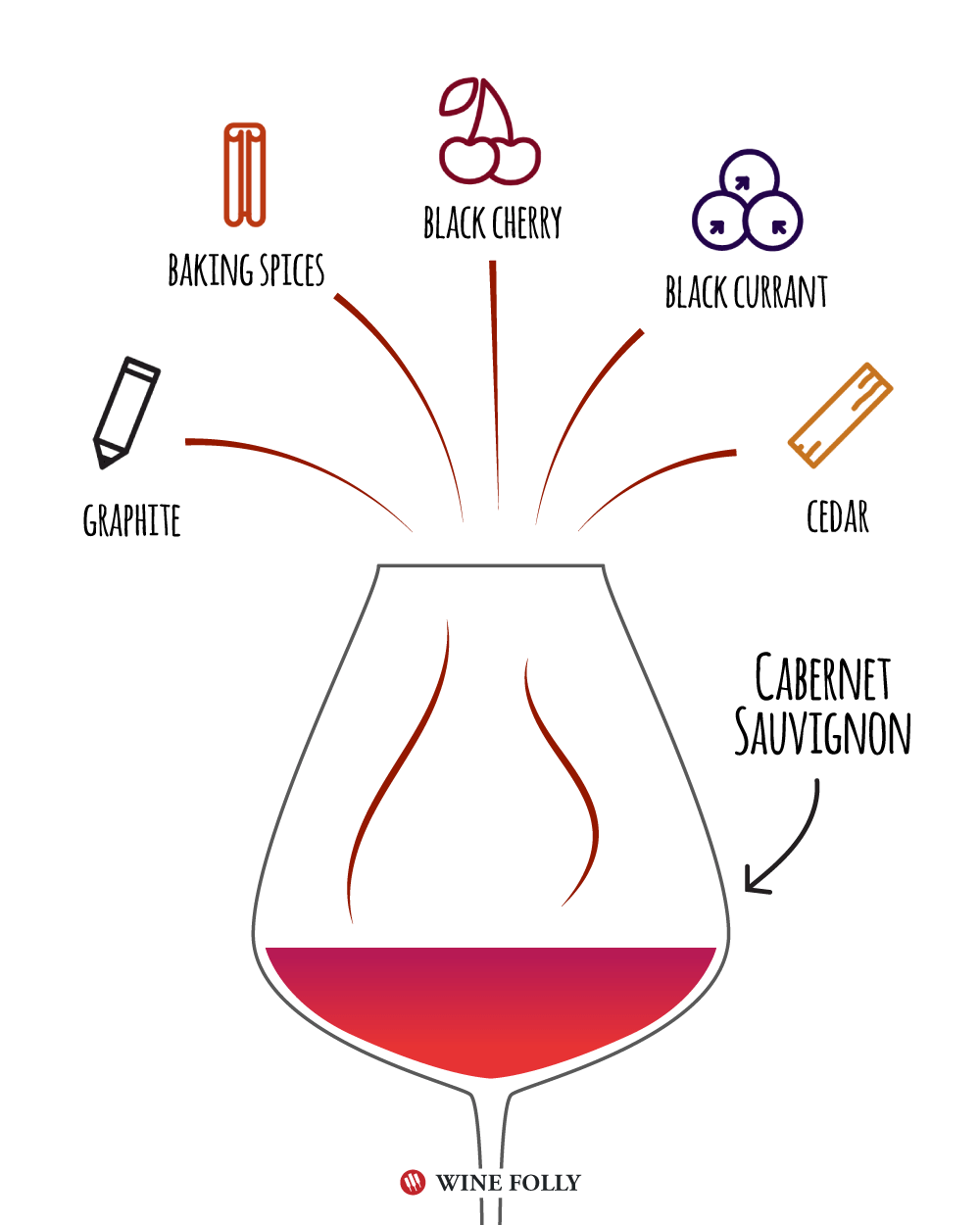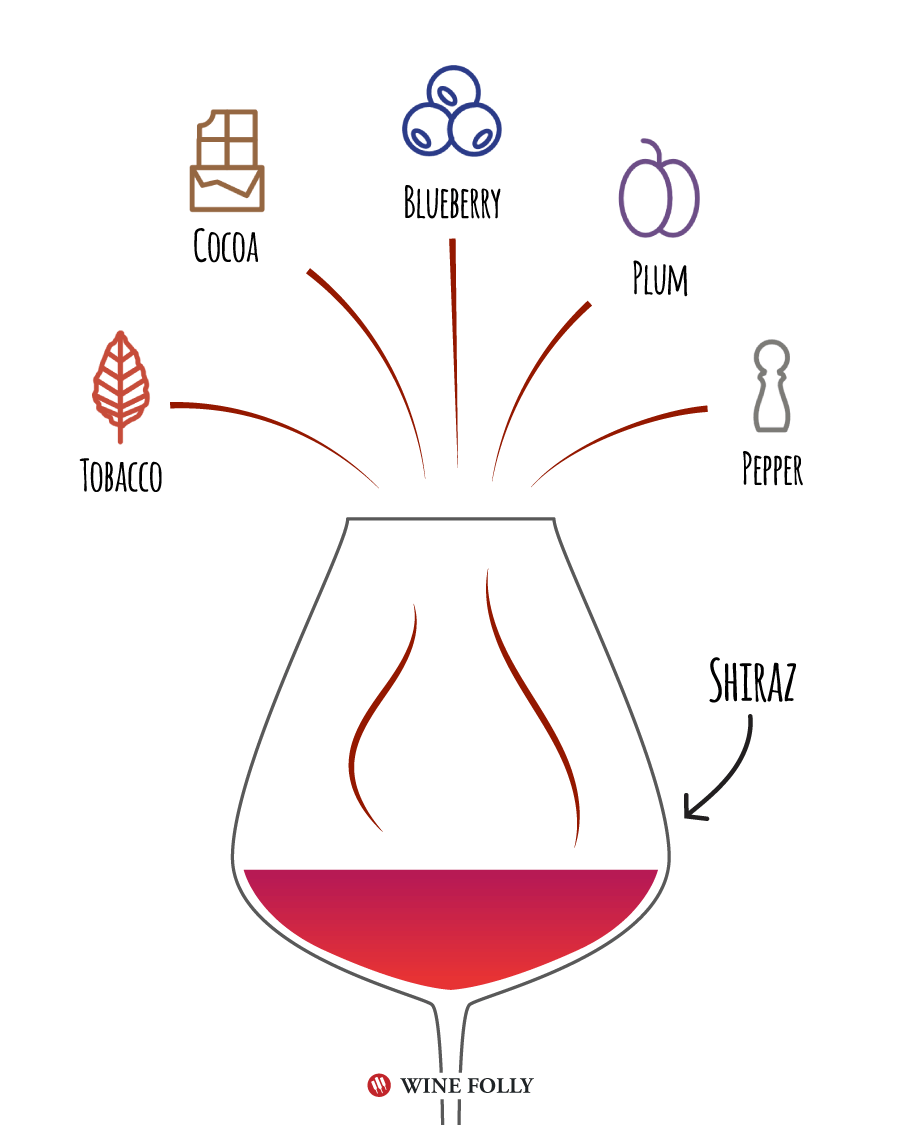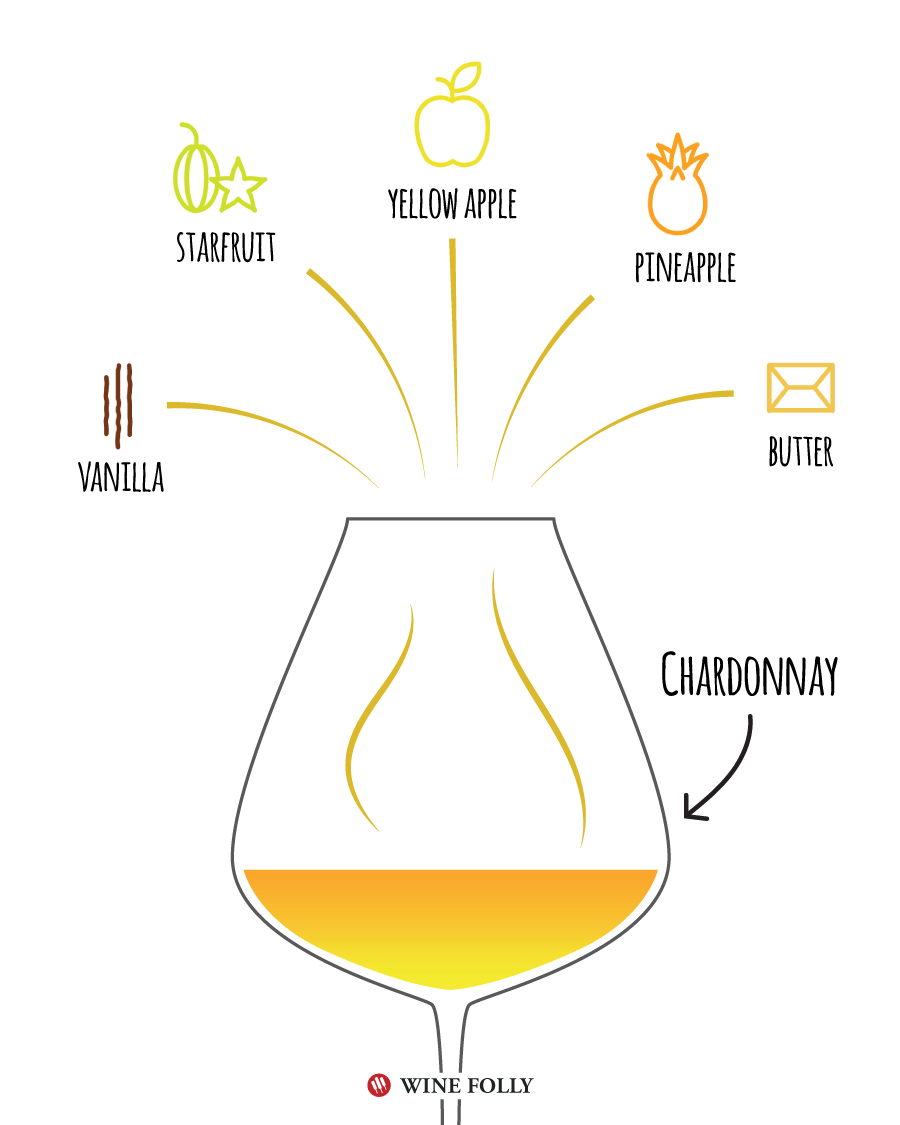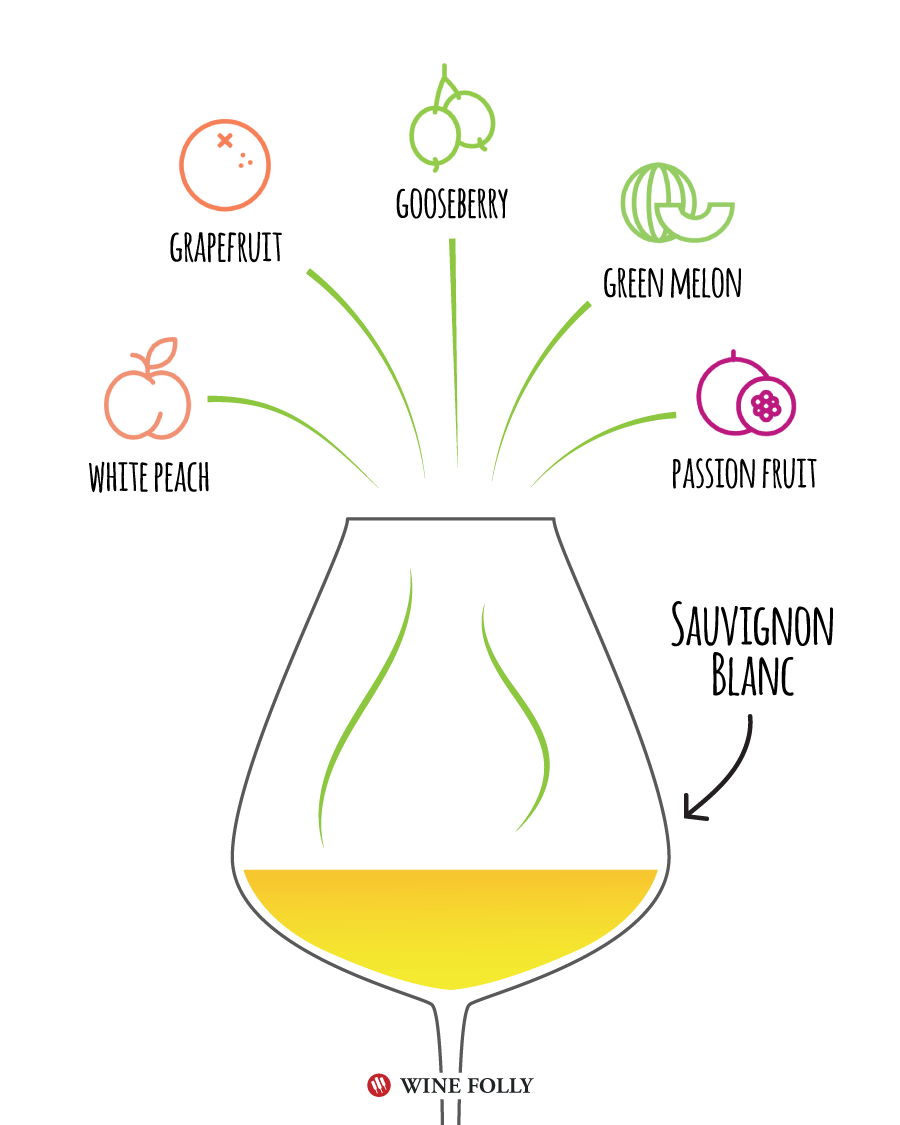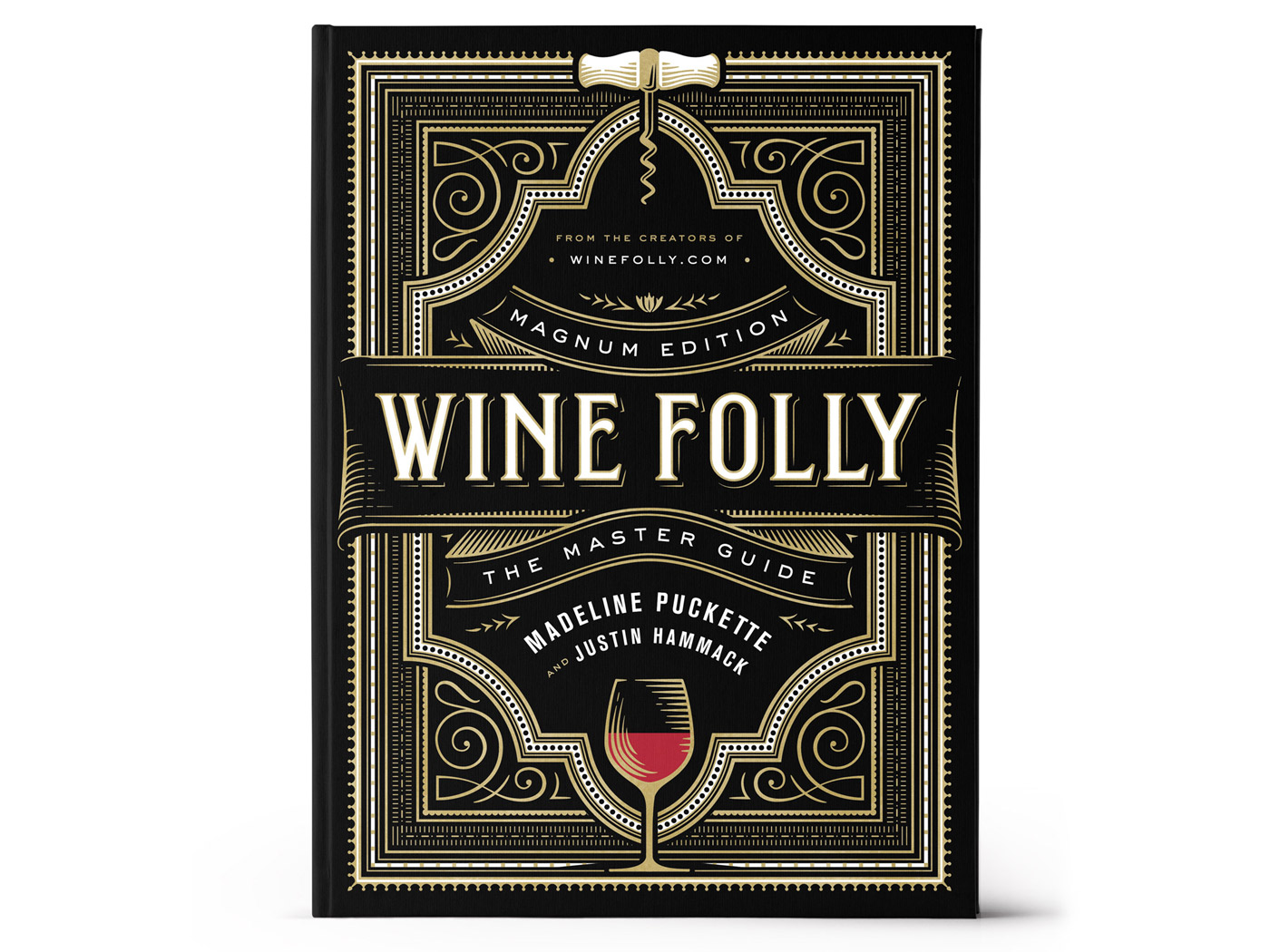Learn where wine flavors come from, how to smell them, and what flavors to expect in Cabernet, Shiraz, Pinot Noir, Chardonnay, and Sauvignon Blanc.
Understanding the flavors in wine starts with a seemingly simple question:
Where do wine flavors come from?
Imagine yourself the size of a single atom floating on the surface of a glass of wine. Down at this level, the surface of wine is quite turbulent.
Ethanol molecules lift off from the surface of the liquid during evaporation, carrying with them a slew of other aromatic compounds. These compounds float into our noses and give wine its many flavors.
But this doesn’t explain why Pinot Noir juice smells nothing like Pinot Noir wine.
Wine flavors are created by chemical reactions during fermentation (when yeast turns sugar into alcohol). Fermentation creates hundreds of flavor compounds.
If cherries aren’t an ingredient in wine, then how come some wines smell like cherries?
At the atomic level, aromatic compounds in wine look identical to – or are mirror images of– smells you already know. When you sniff cherry in wine, you are smelling the identical aroma compounds that also waft from a freshly baked cherry pie. (Egads, now I’m hungry!)
Here are common wine flavors by category:
FRUIT
Red wines typically smell like various berries, cherries, and plums.
White wines typically smell like citrus fruits, tree fruits (peaches, apples, pears), and melons.
FLOWER / HERB
Both red and white wines can have subtle (or not-so-subtle) aromas of fresh flowers, roses, green herbs, leaves, green vegetables, and/or stems.
OTHER
Don’t be surprised if you get whiffs of cheese, bread, milk, butter, bacon fat, petrol, nail polish, potting soil, or petrichor (smells like freshly wetted asphalt in the summer – side note: I’m addicted to this smell…).
AGING / OAK
Some wine smells come specifically from aging wine (or oaking it) and include vanilla, baking spices, pie crust, caramel, Maillard Reaction (the “brown butter” smell), tobacco, cedar, coffee, leather, creosote, and chocolate.
Cabernet Sauvignon Flavors
Read more about Cabernet Sauvignon.
Shiraz Flavors
Read more about Shiraz.
Chardonnay Flavors
Read more about Chardonnay.
Sauvignon Blanc Flavors
Read more about Sauvignon Blanc.
If I smell cherries and you smell pepper, who’s right?
Look at your nose. Now imagine (or look at) someone else’s nose. (Don’t stare!) They look pretty different right?
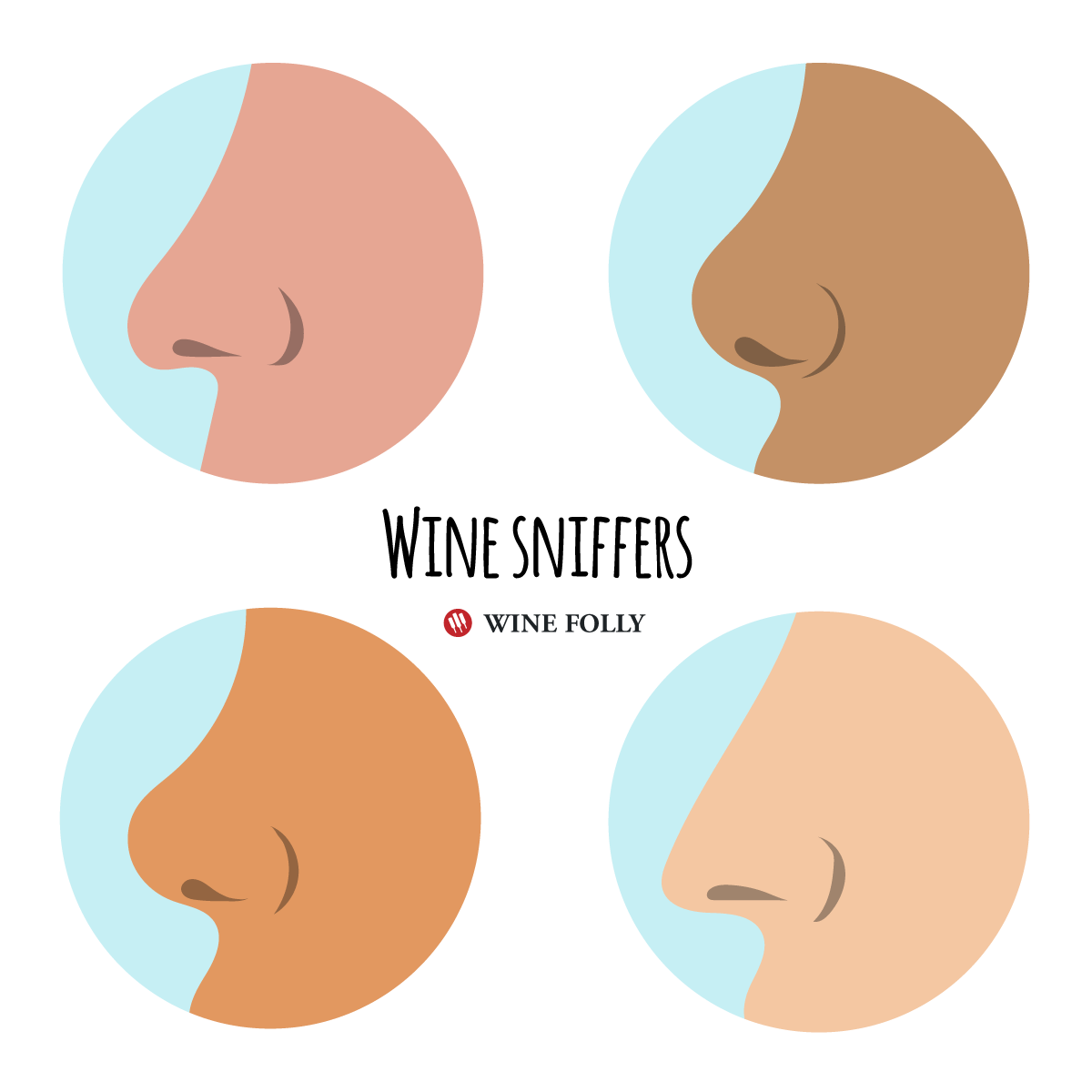
Differences in our physical attributes, along with how our brains process smells, partially explain why we each pick out different wine flavors and smells.
That said, each wine does have a “base set” of aromas that most people agree upon (who aren’t asnomiacs.)
BTW, if you have trouble picking out wine flavors, I highly recommend watching this video with a glass of Pinot Noir.
NOTE: For those who think their nose blows: I know a Master Sommelier with a below-average sniffer… So, don’t give up on your honker!
Get out and use your snout!
Next time you pick up a glass of wine don’t drink it! (Well, at least not at first). Take your time to pick out 3–5 wine flavors BEFORE you taste it. That’s the secret.
This, my friends, is how you become an amazing taster. Salut!
A Book Full of Wines to Sniff
Stop drinking wine blind. Wine Folly: The Master Guide (Magnum Edition) is your guide to the world of wine. Find out what to taste, how to taste it, and most importantly, where to find wines you’ll love.
